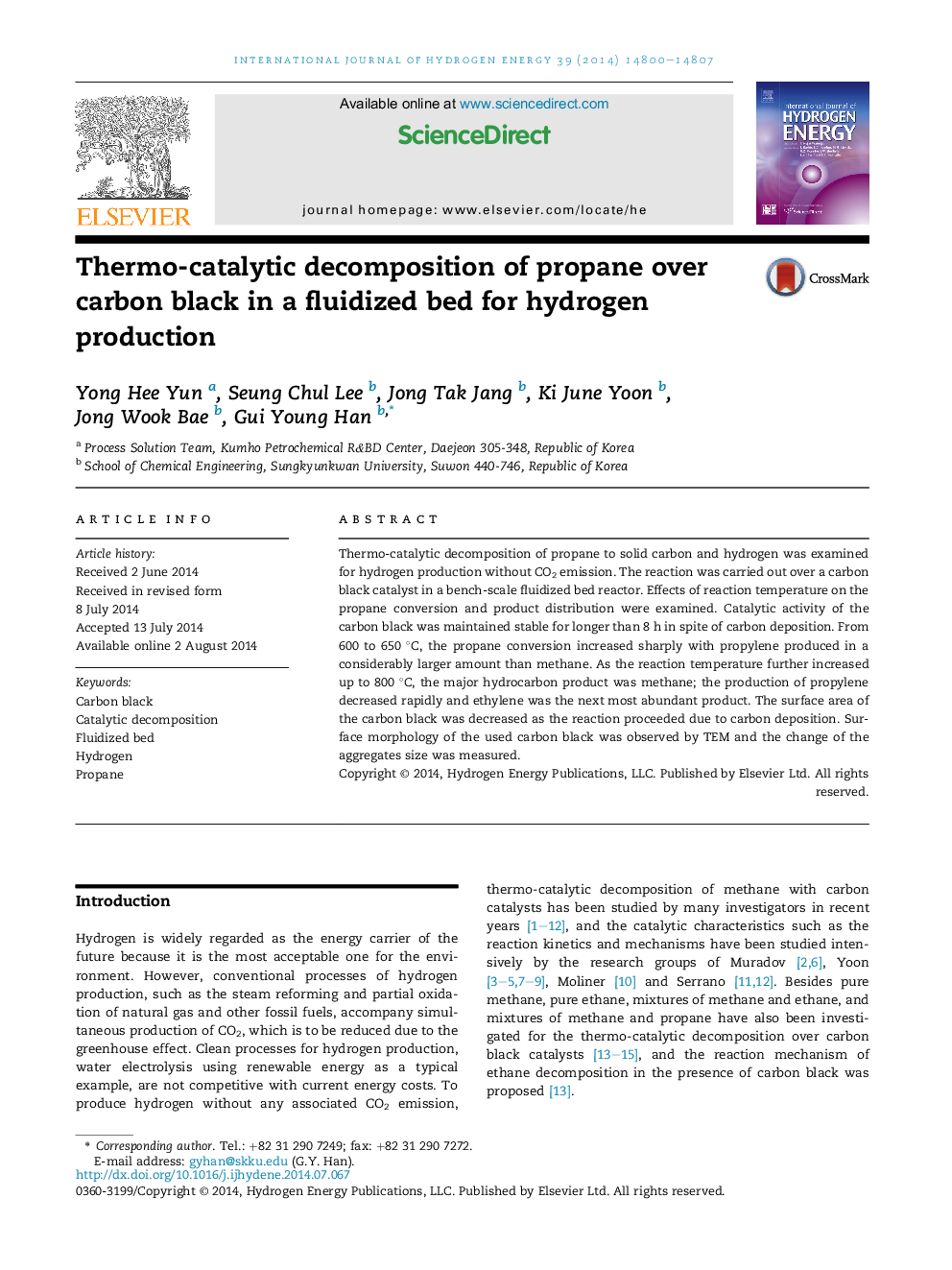| Article ID | Journal | Published Year | Pages | File Type |
|---|---|---|---|---|
| 7718063 | International Journal of Hydrogen Energy | 2014 | 8 Pages |
Abstract
Thermo-catalytic decomposition of propane to solid carbon and hydrogen was examined for hydrogen production without CO2 emission. The reaction was carried out over a carbon black catalyst in a bench-scale fluidized bed reactor. Effects of reaction temperature on the propane conversion and product distribution were examined. Catalytic activity of the carbon black was maintained stable for longer than 8 h in spite of carbon deposition. From 600 to 650 °C, the propane conversion increased sharply with propylene produced in a considerably larger amount than methane. As the reaction temperature further increased up to 800 °C, the major hydrocarbon product was methane; the production of propylene decreased rapidly and ethylene was the next most abundant product. The surface area of the carbon black was decreased as the reaction proceeded due to carbon deposition. Surface morphology of the used carbon black was observed by TEM and the change of the aggregates size was measured.
Related Topics
Physical Sciences and Engineering
Chemistry
Electrochemistry
Authors
Yong Hee Yun, Seung Chul Lee, Jong Tak Jang, Ki June Yoon, Jong Wook Bae, Gui Young Han,
